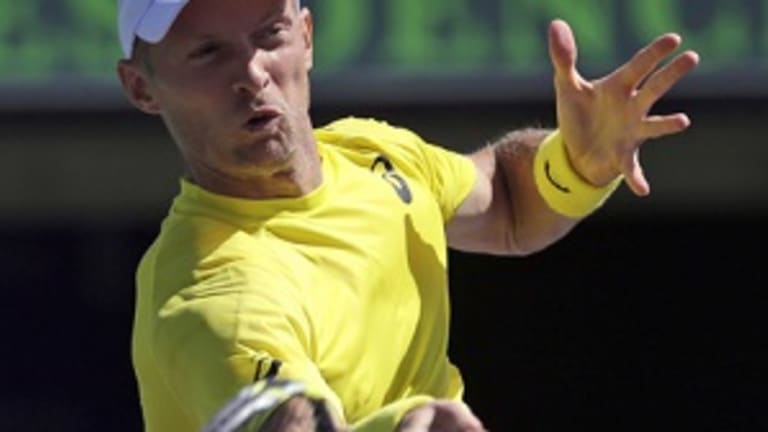“Now I'm top 10. She scared about if I start to, with kids, lose tennis and go down, stray. That's was because I start to miss and I want to go home, (not) want to practice. That's what is different.”—Nikolay Davydenko, commenting in 2010 on his wife Irina’s fear that if the couple have children he will lose his motivation — and earning potential.
Nikolay Davydenko’s English was always a little like one of those bird’s nests you get in a fishing reel; it took a lot of untangling. But that also has been part of Davydenko’s goofy charm. Born in the Ukraine but a Russian citizen since his 18th year, Davydenko officially retired Thursday at age 33, 21ATP Tour level titles and more than $16 million richer than when he first sallied forth in 2001 to compete in Grand Slams.
Ranked as high as No. 3 in the world in 2006, Davydenko won just six tour level matches in this, another injury-fraught year, during which his ranking dropped to No. 244. Even hard-driving Irina Davydenko must see that it’s time to allow her hard-working husband to put his feet up and focus on a life after tennis.
Davydenko was a four-time Grand Slam semifinalist (two each at the French and U.S. Opens). He won three Masters 1000 titles, the last of them in his career year of 2009. He finished 2009 ranked No. 6 in the world thanks to the single greatest performance of his career.
Davydenko won the ATP World Tour Finals that year, and he did it the hard way. After losing his first round-robin match to Novak Djokovic, Davydenko slashed his way through, in succession, No. 2 ranked Rafael Nadal, No. 9 Robin Soderling, No. 1 Roger Federer and No. 5 Juan Martin del Potro — a man a full eight inches taller and incalculably stronger than Davydenko.
